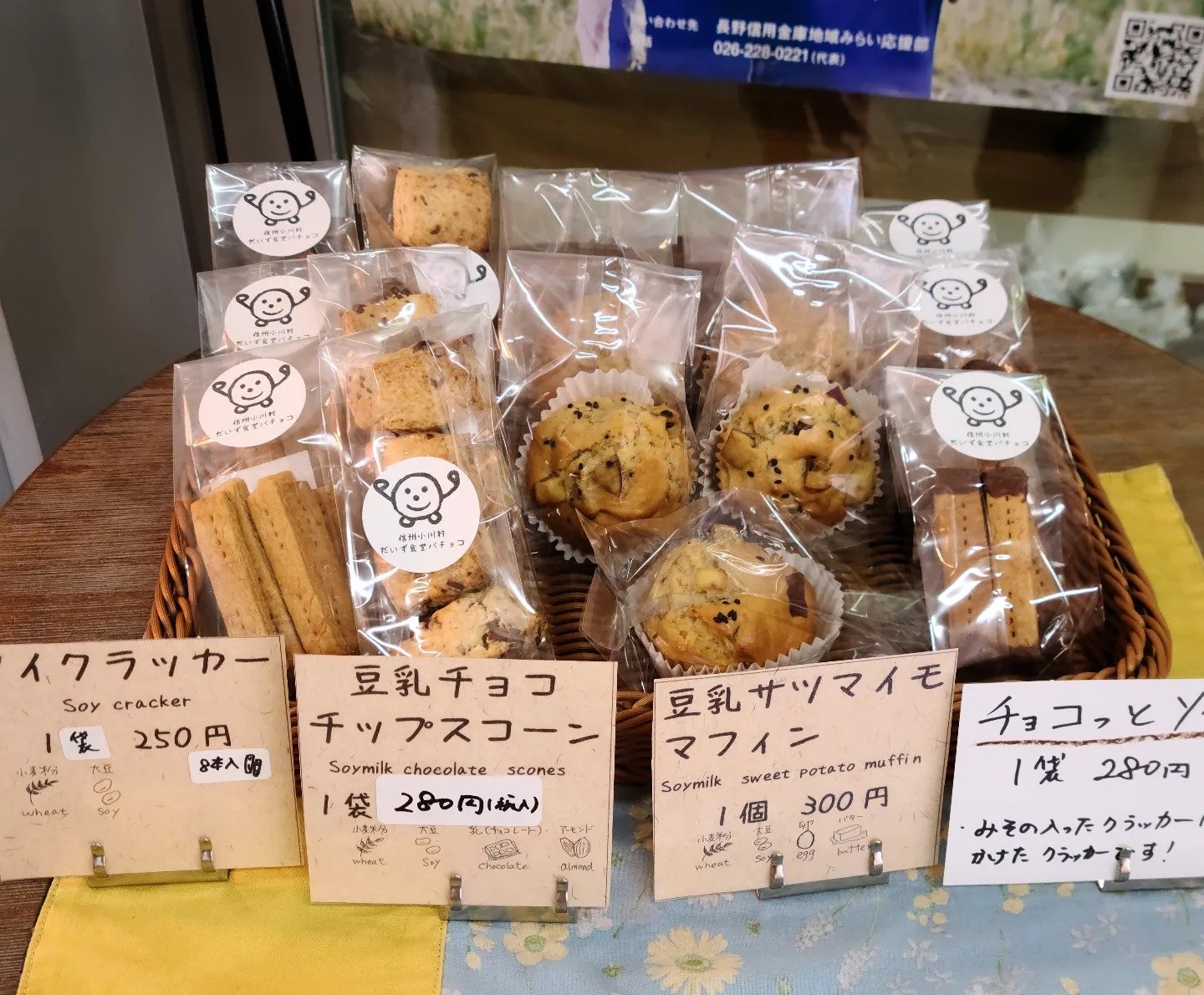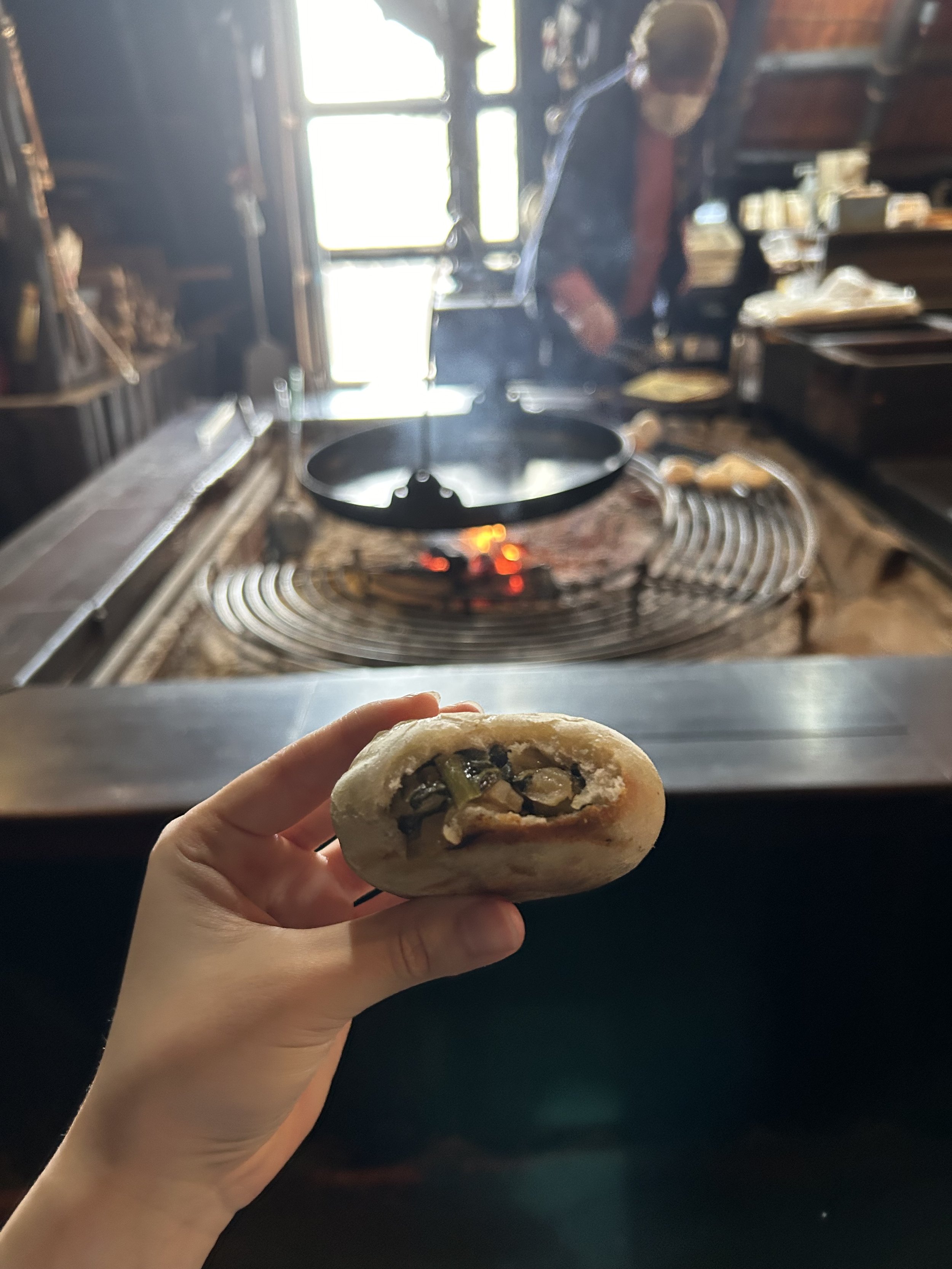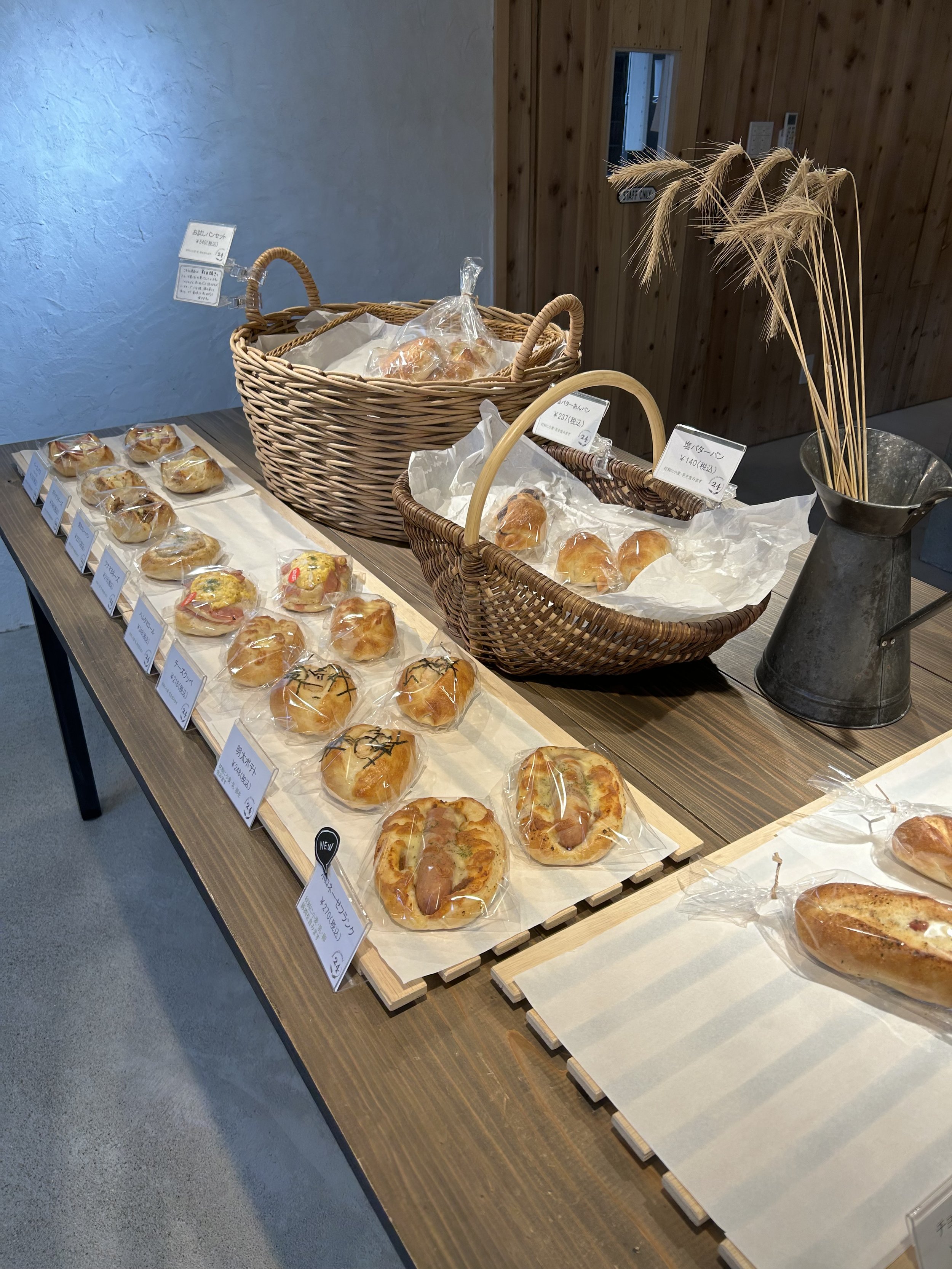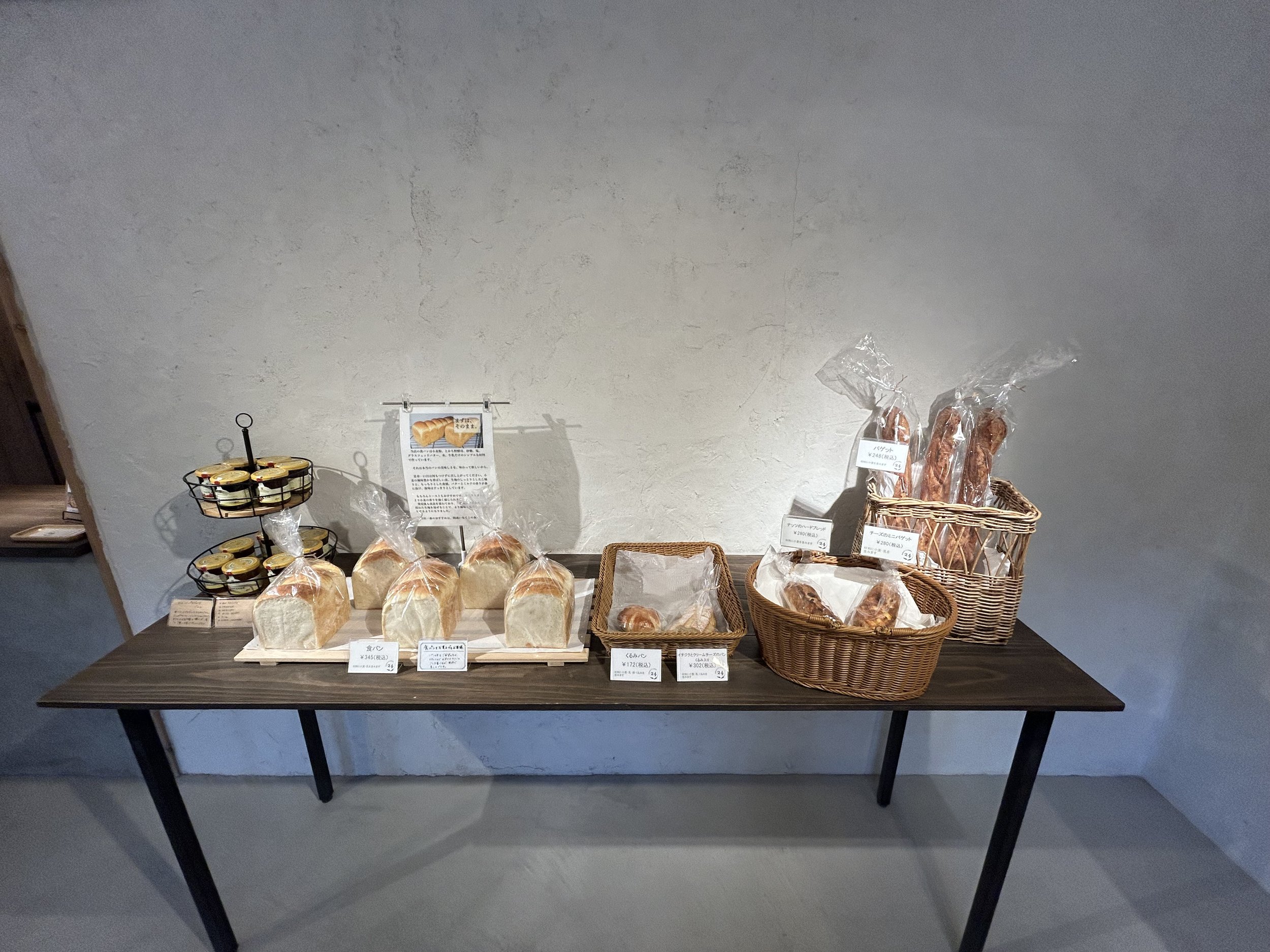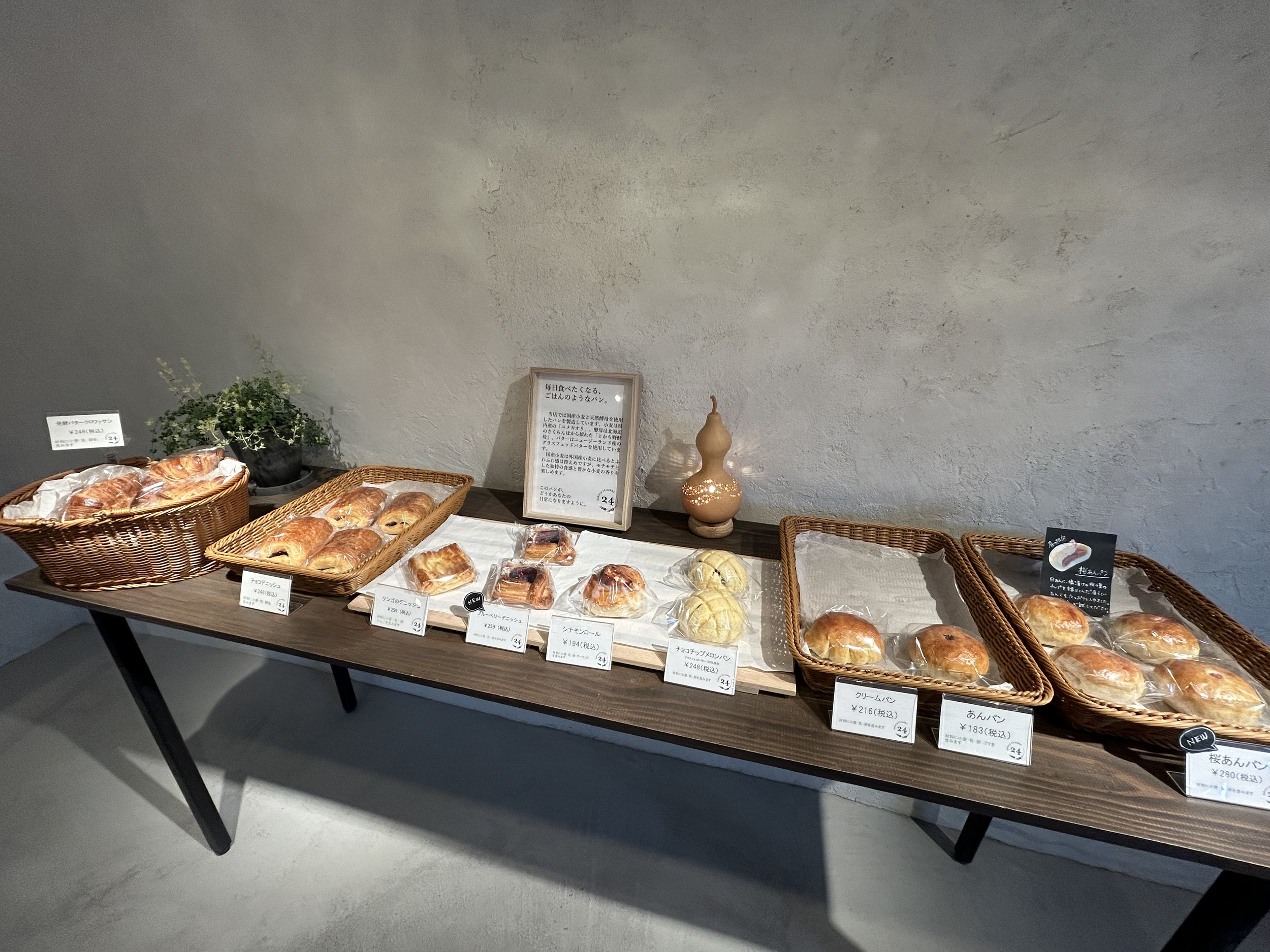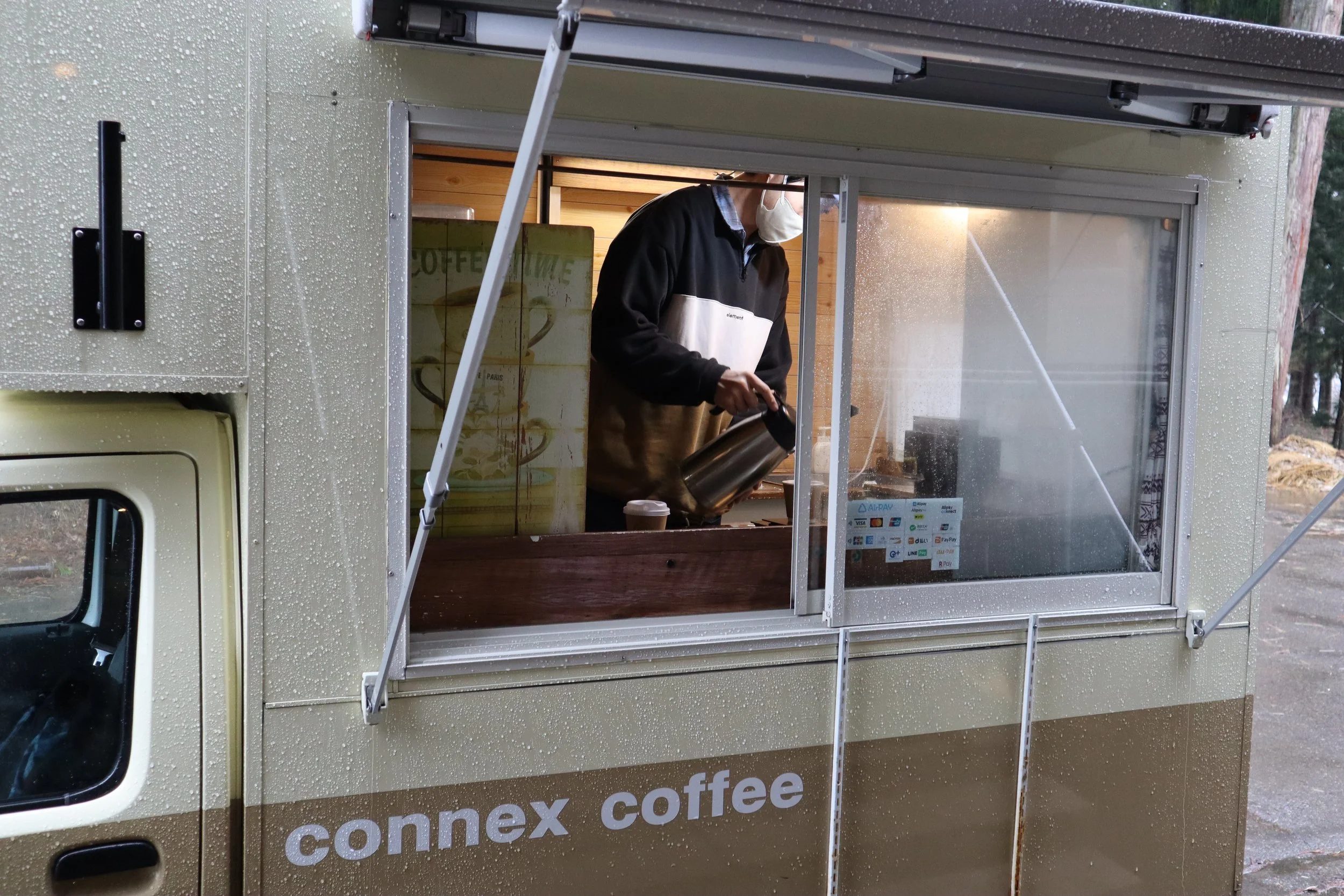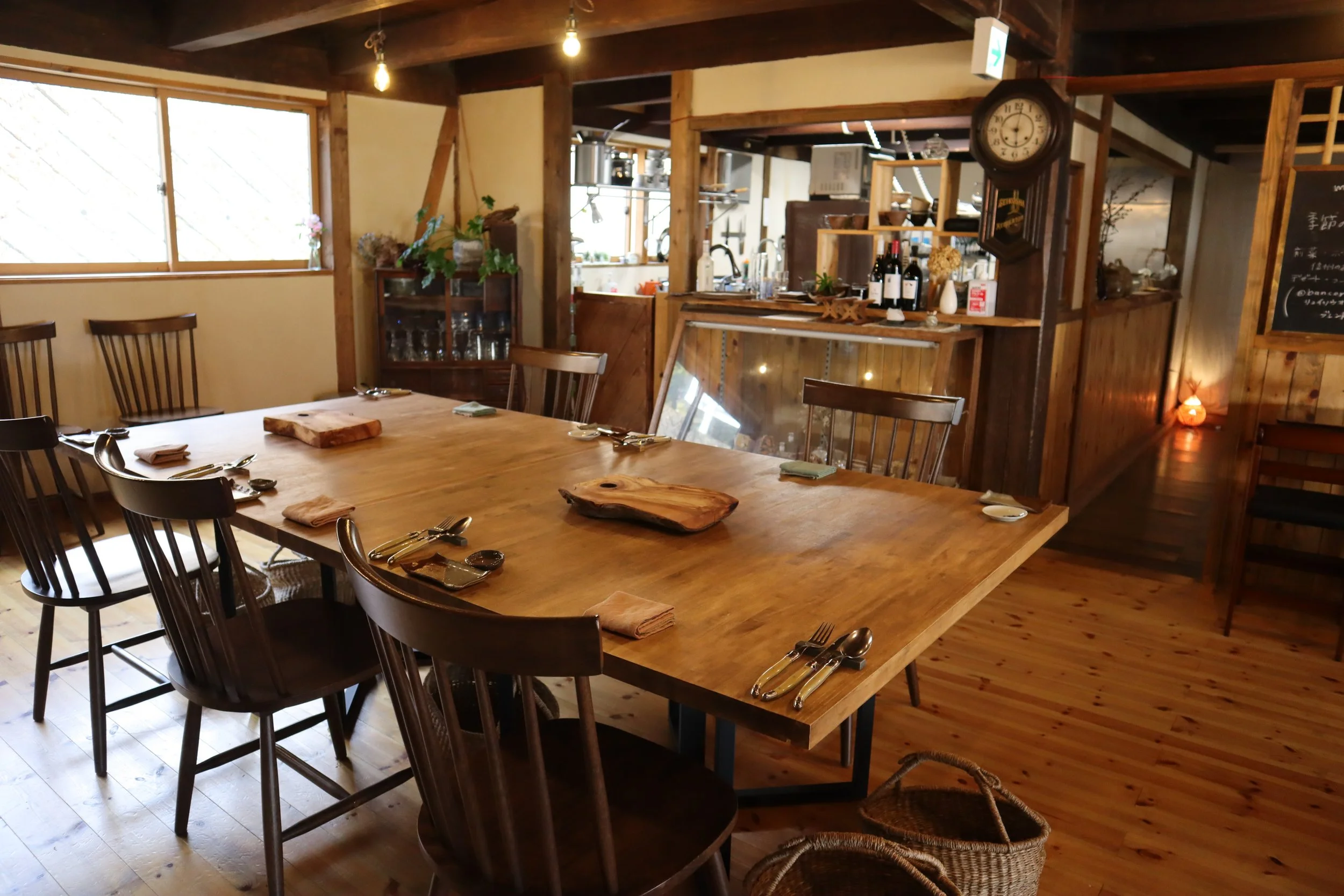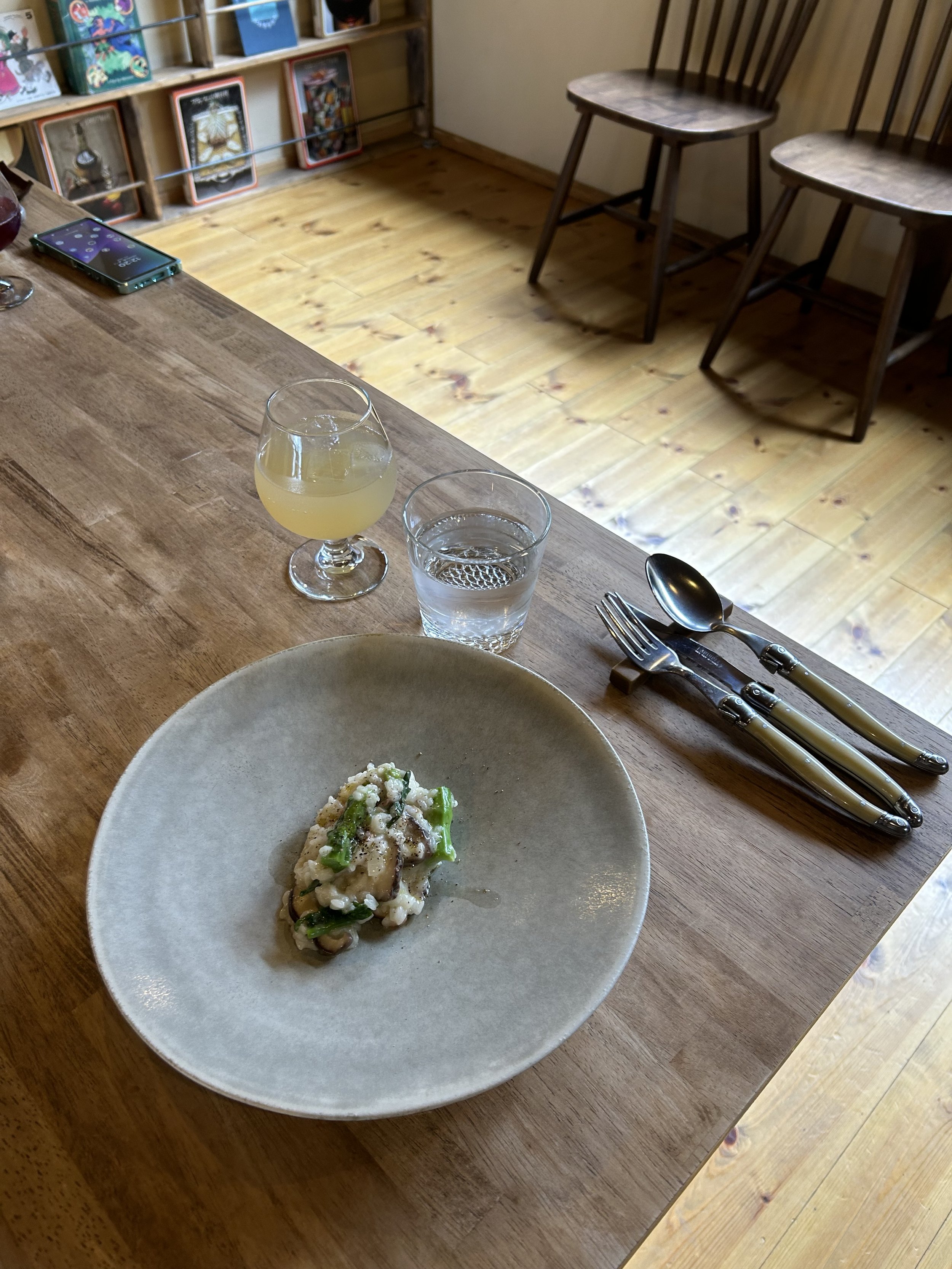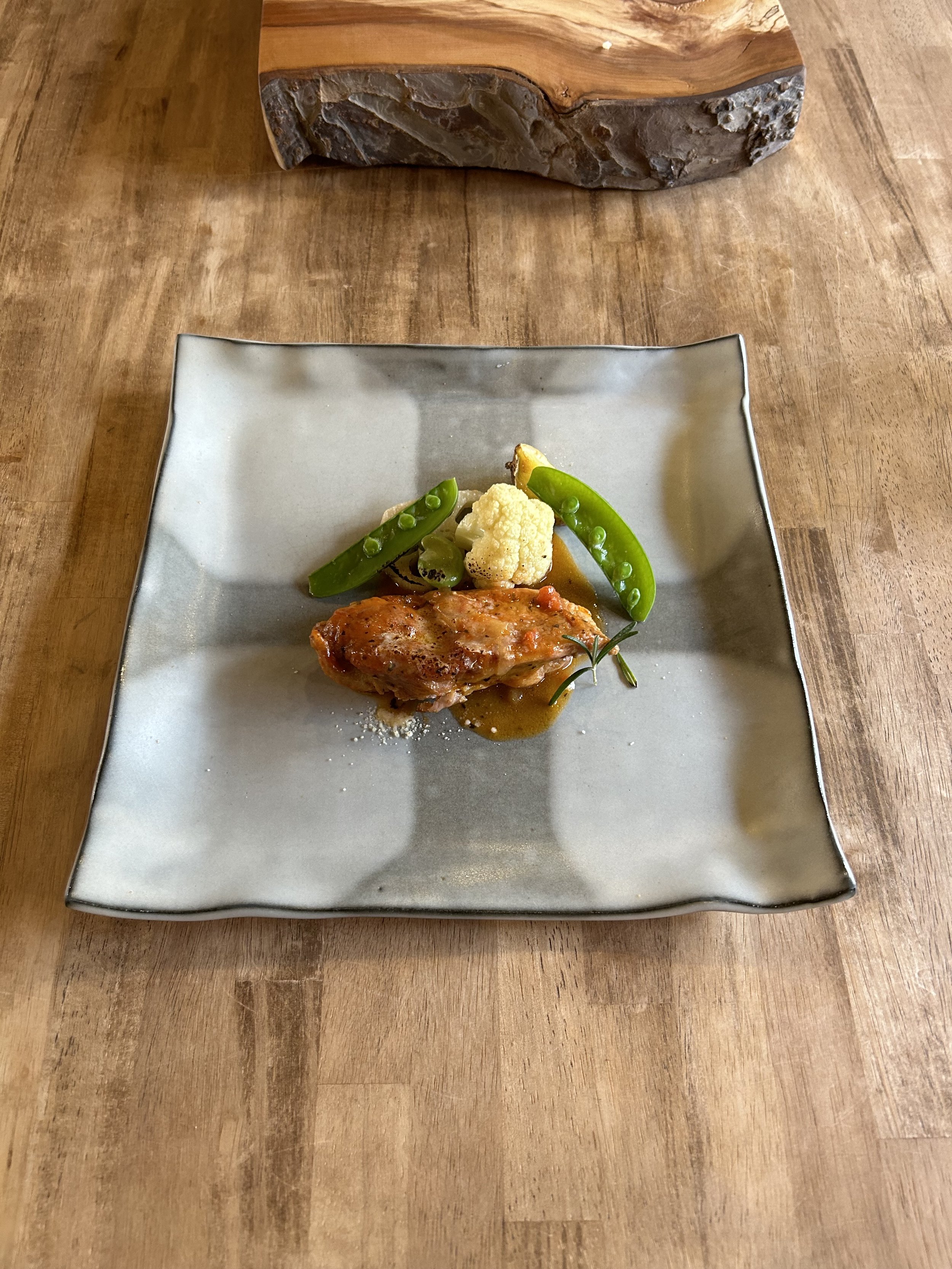Ogawa Village, Nagano Prefecture.
Here lies the "nothing" you've been seeking.
It's precisely because of this "nothing" that you can enjoy the cherry blossoms of spring, the greenery of summer, the autumn leaves, and the snowy landscapes of winter.
The starry skies are year-round!
It's about an hour and a half from Tokyo to Nagano Prefecture by Shinkansen.
You won't face any inconveniences during your stay. You can enjoy beautiful nature and delicious cuisine.
There's also a workspace for those on a long-term stay.
This time, we visited Ogawa Village in collaboration with Shin-etsu Broadcasting, a TV station.
We worked closely with the Ogawa Village office to fully immerse ourselves in the local charms.
Hello, World!
Pick up!
-

Michi-no-Eki Ogawa
At Michi no Eki Ogawa, there are various facilities such as the restaurant 'Ajisai' where local ingredients are enjoyed, the soy food kitchen 'Pachoco,' the 'SanSan Market' where freshly harvested vegetables are available for purchase, and a convenience store.
-
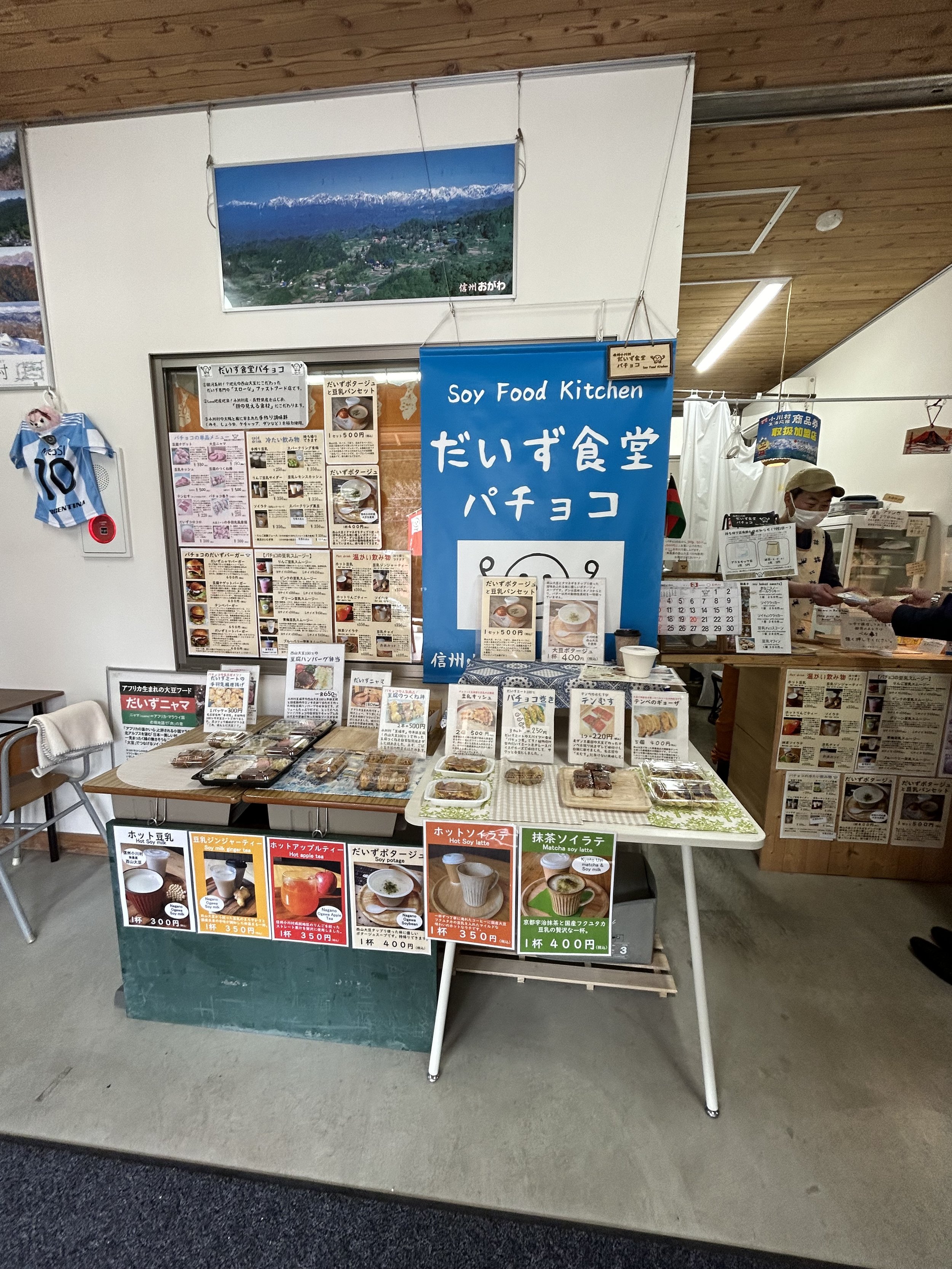
Soy Food Kitchen Pachoko
Dishes and sweets made with local Nishiyama soybeans are rich in flavor and nutritional value, with the Soy Nyama Burger being a highly recommended menu item. A juicy soy patty combined with fresh vegetables and a special sauce creates a perfect balance. It's a popular choice among both vegans and vegetarians.
-
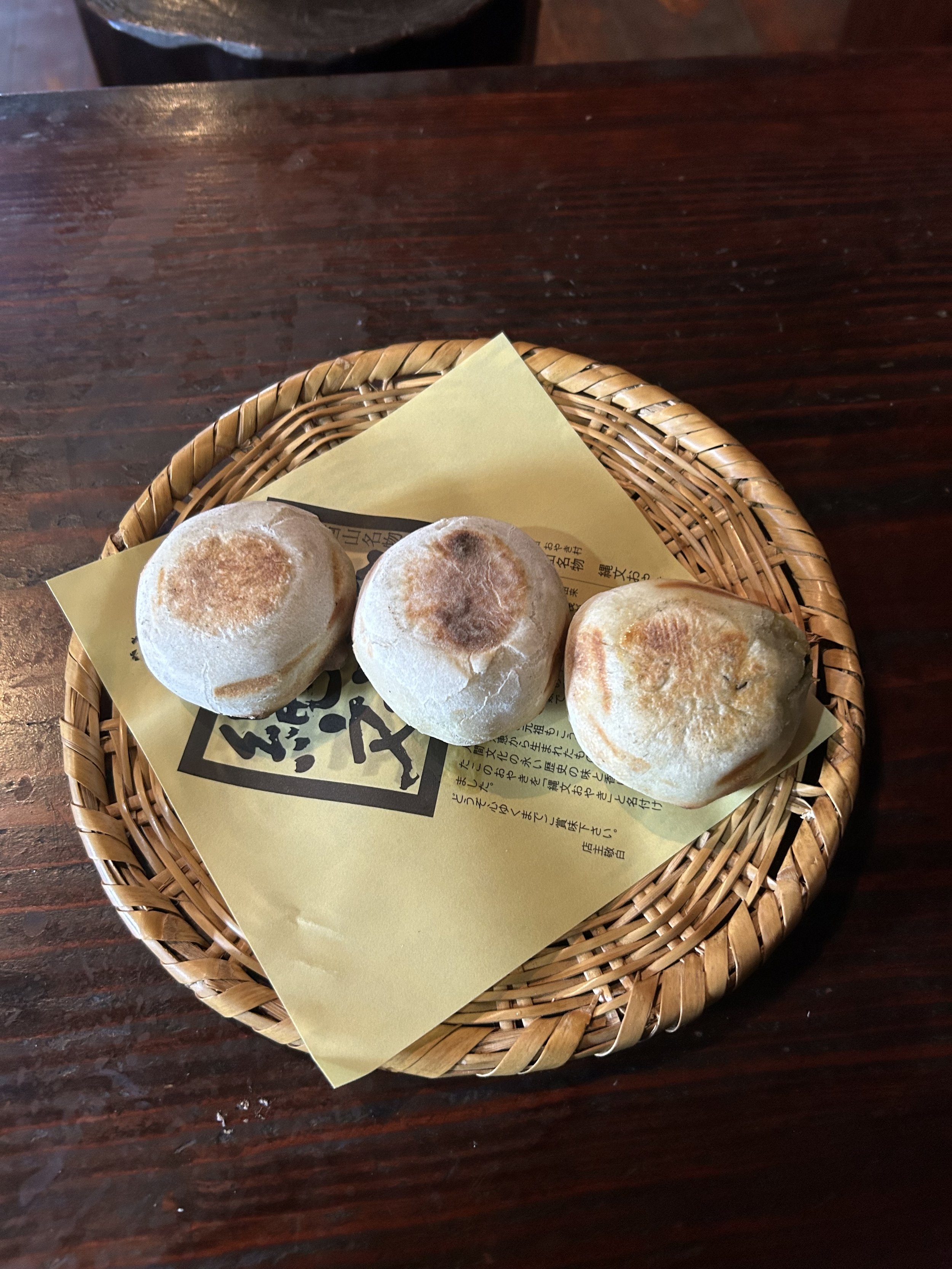
Ogawanosho Jomon Oyaki-mura
Making "Oyaki" offers a soul-enriching experience, merging the hands-on joy of crafting dough with the warmth of hearth baking. This traditional method enhances the taste, creating a delightful contrast between the crispy crust and the flavorful filling, capturing the essence of Nagano's soul food in every bite.
-
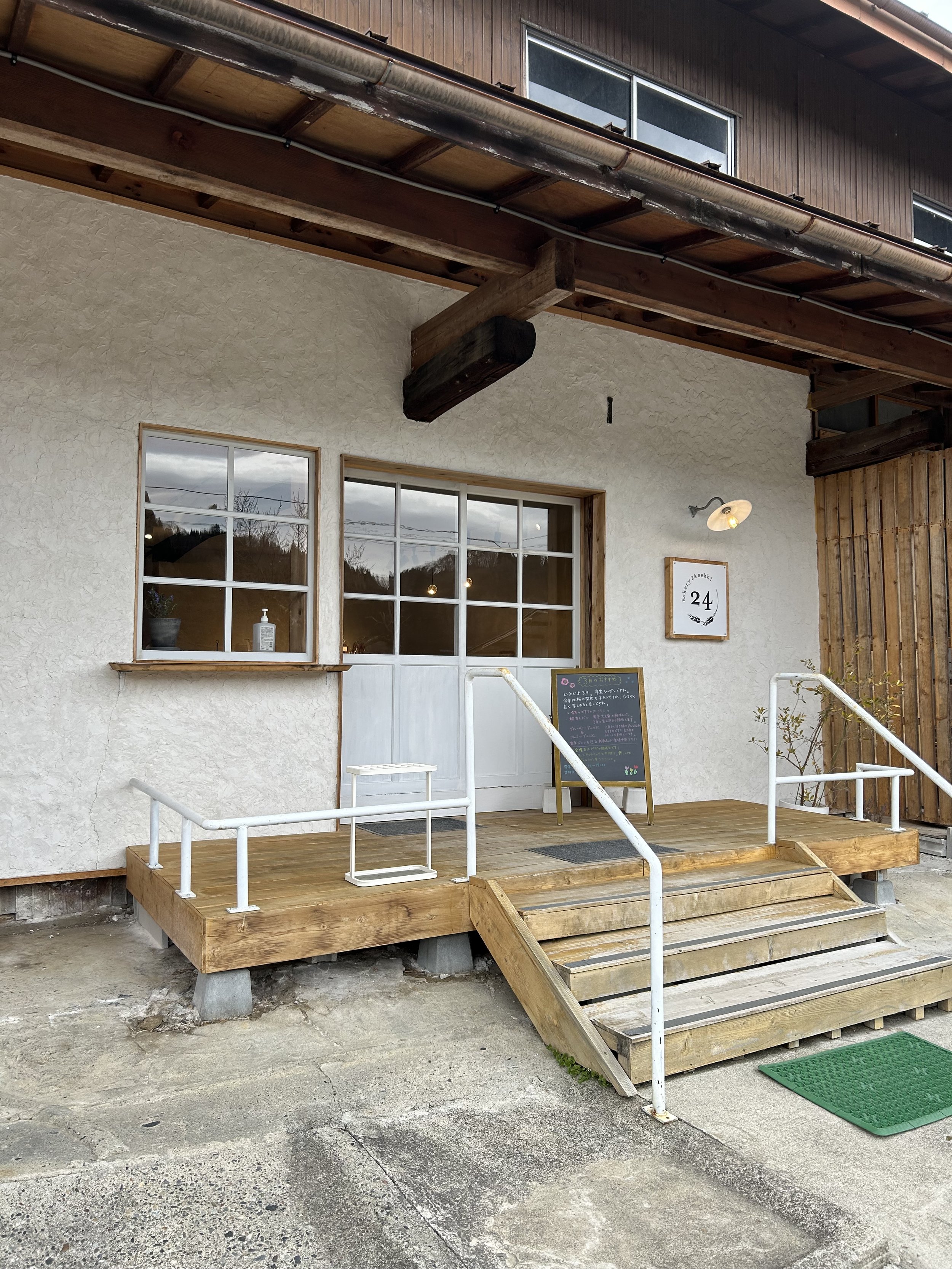
24Sekki
"Bakery 24sekki" is a bakery housed in a renovated 180-year-old traditional house.
The walls are illuminated by spotlights, making the beautifully shining breads emit an aura akin to that of art pieces, radiating a presence that captivates the viewer.
-
Rinrinkan
An inn with a spectacular view of the Northern Alps.
A place where "nothing" means "everything."
Thus,
it's full of delicious air,
beautiful flowers,
and
stunning starry skies.
-
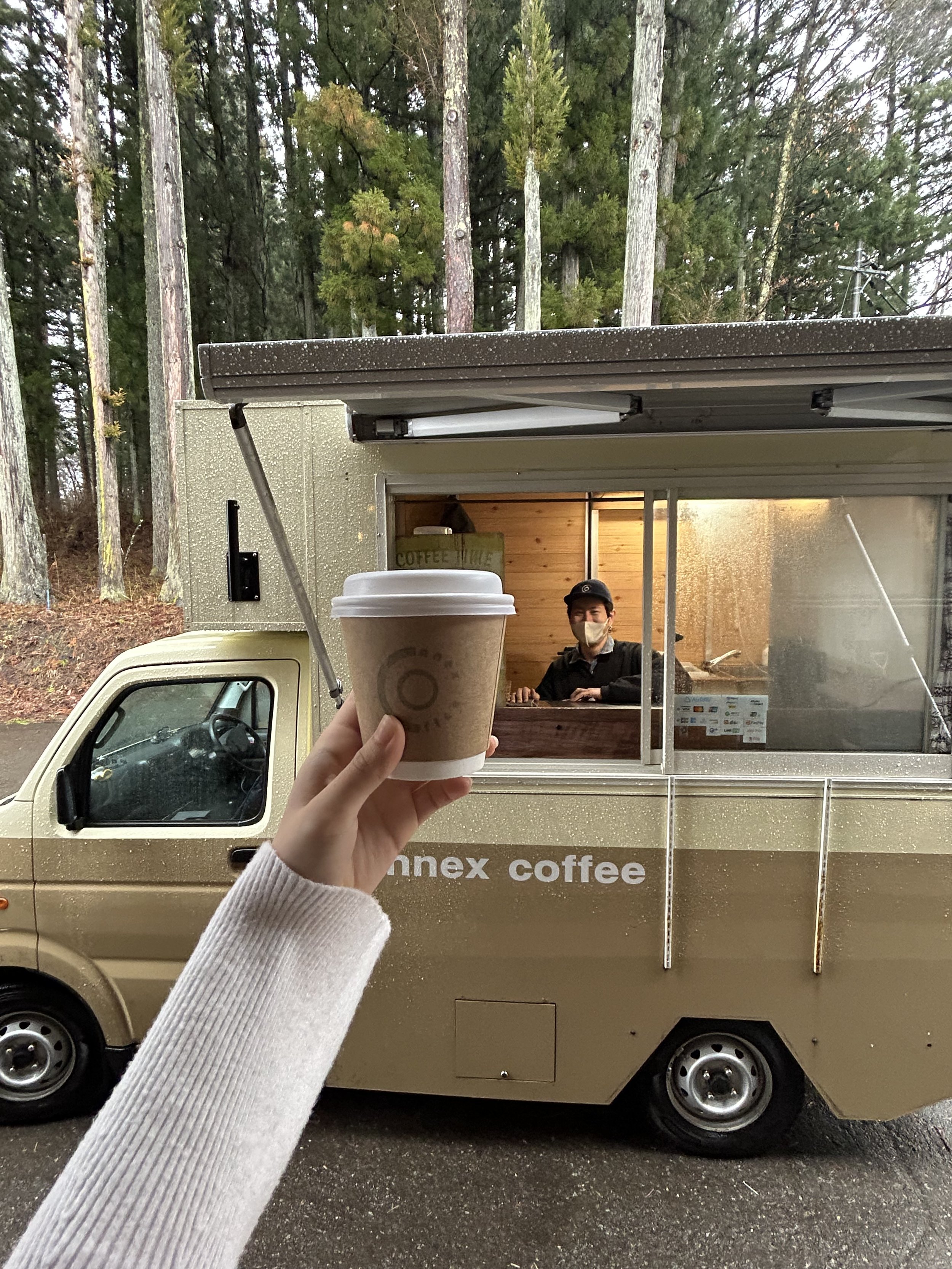
Connex coffee
Located one step away from the hustle and bustle of the city, there is a mobile coffee stand where you can smell authentic coffee. The small space is filled with soothing music and warm smiles. Here, a cup of coffee is more than just a drink, it's a special moment.
-
Ruisseau
French restaurant & Inn.
Ingredients are primarily sourced locally, and the establishment also incorporates works by nearby ceramic artists. Thus, not only the cuisine but also the tableware and the ambiance reflect the local culture and aesthetic, making it a unique feature.
-

The 'Hoshi to Midori no Romankan' Experience
DescriptioNestled next to the famous Hakuba Village, Ogawa Village in Japan's Northern Alps is a hidden gem. Encompassed by the majestic mountains and clear skies, it offers a blend of natural beauty and cultural richness. The 'Hoshi to Midori no Romankan' facility provides a unique experience, embracing both the stars and the lush landscapes. Explore the treasures awaiting you in this enchanting part of Japan.n goes here
Cultural Heritage and Traditions
Ogawa Village boasts a rich cultural heritage where traditional Japanese customs are still alive. The annual summer festival is a highlight, featuring traditional dances and music. Visitors can explore ancient shrines and temples to understand the village's spiritual roots. Local craftspeople use age-old techniques to create beautiful handmade goods, showcasing the village's artistry. Regional folklore influences local culture, and storytelling traditions remain strong. The local community is warm and welcoming, eager to share their customs. Workshops are available to learn crafts like indigo dyeing and pottery making.
Natural Wonders and Outdoor Activities
Nature lovers will find Ogawa Village a paradise, offering various outdoor activities year-round. The Chubu-Sangaku National Park features lush forests and diverse wildlife. Scenic hiking trails provide panoramic views of the Japanese Alps. Hidden waterfalls and clear streams are part of the landscape. Winter brings skiing and snowboarding opportunities, with Hakuba's slopes nearby. In spring, cherry blossoms bloom, and autumn brings vibrant foliage. The village's pristine environment is perfect for stargazing, offering unparalleled views of the night sky. The region's unique flora and fauna are abundant.
Local Cuisine and Gastronomy
Ogawa Village's traditional cuisine emphasizes fresh, local ingredients. Nagano's famous buckwheat soba noodles are a highlight, prepared in traditional styles. Regional specialties like oyaki, savory dumplings filled with seasonal vegetables, are a must-try. Local farms and orchards offer fresh produce, including renowned apples and mushrooms. Meals are prepared using pure mountain water, enhancing the taste of local products. Experience Japanese tea culture at a traditional tea house and attend sake tasting sessions to explore local brews crafted with care.
Accommodation and Hospitality
Ogawa Village offers comfortable accommodations that blend charm with tradition. Staying in a ryokan, a traditional Japanese inn, provides authentic hospitality. Guests enjoy modern amenities with tatami rooms and futon bedding. Japanese hospitality is famous for its personalized service and attention to detail. Outdoor onsen (hot springs) offer relaxation with stunning nature views. Local guesthouses or minpaku provide intimate experiences with local hosts. Accommodations often organize cultural activities like cooking classes or guided tours.
Sustainability and Eco-Tourism
Ogawa Village is committed to sustainability and eco-tourism, aiming to preserve its natural and cultural resources. Initiatives to reduce tourism's environmental impact include waste reduction programs and energy-efficient practices. Organic farms and permaculture projects promote sustainable agriculture. Eco-friendly activities, like guided nature walks, emphasize environmental education. Supporting local businesses that prioritize ethical practices helps preserve traditional ways of life amidst modernization.







